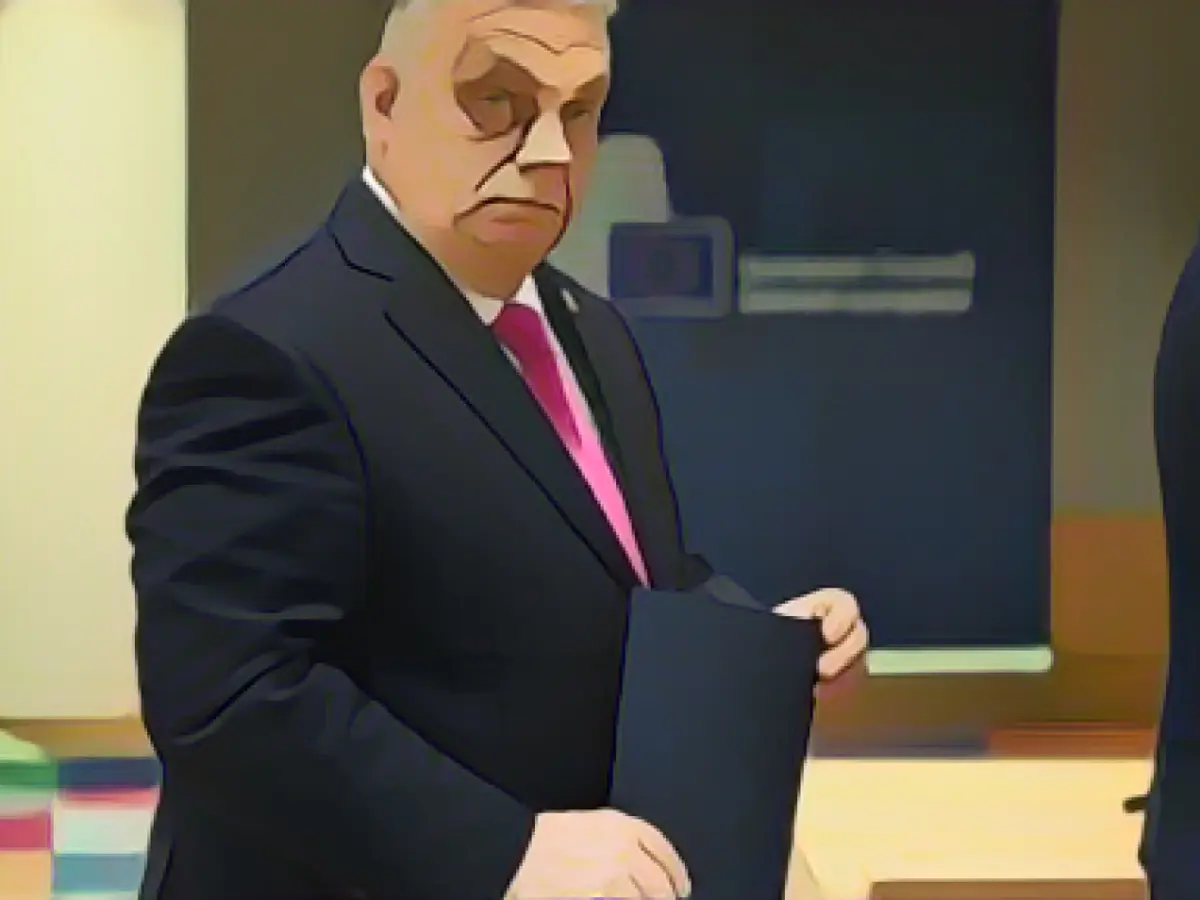Hungary's Prime Minister, Viktor Orban, thought it was a fantastic opportunity for his country to make its demand for more EU funding crystal clear before the Ukraine decision. He stated, "We deserve everything, not half, nor a quarter, but everything."
The European Commission had already released a substantial ten billion euros for Hungary, thanks to its judicial reform. Nonetheless, further billions were on hold due to concerns about rights violations, such as those related to sexual minorities or asylum law. The Belgian Prime Minister, Alexander De Croo, stated that no progress had been made in these areas, and the freeze on funds could only be lifted if there was progress.
In a surprising move, Orban vetoed EU aid worth 50 billion euros for Ukraine during the night. He requested "adequate preparations" before making the decision, though the EU aimed to hold a special summit on this matter at the beginning of 2024.
Ireland's Taoiseach, Leo Varadkar, expressed disappointment, while the European Parliament was quite critical. Vice-President Katarina Barley (SPD) blasted Orban as the most corrupt head of government they had encountered due to the violations.
Before the summit, Orban pointed out the need for a strategic debate about the EU's actual goals related to Ukraine aid. Many countries saw this as a delaying tactic, argued diplomats. The EU Commission had proposed these 50 billion euros as a lifeline to prevent Ukraine's economic collapse.
However, Orban's veto also stalled the increase in the multi-year EU budget framework until 2027. Furthermore, discussions on additional funds for migration and defense were delayed as well. At the summit, German Chancellor Olaf Scholz (SPD) pushed for covering Ukraine's needs by redistributing funds that had already been pledged, if feasible.
The Middle East war, migration, and fighting anti-Semitism were topics for the second day of the summit. Spain, Belgium, Ireland, and Malta advocated harsher language against Israel's actions in the Gaza Strip. The Belgian Prime Minister, De Croo, urged that "the killing of innocent civilians must finally stop now."
Despite Orban's criticism, Ukraine's accession negotiations began. Although he refused to veto it in the end, Chancellor Scholz played a significant role in the breakthrough, suggesting that Orban leave the room temporarily. Orban later distanced himself from the summit agreement, calling it completely senseless and irrational.
Ukrainian President Volodymyr Selensky hailed the decision as a victory for Ukraine and the whole of Europe. The aid package to Ukraine has enormous implications for EU unity, the rule of law, and relations with both Ukraine and Russia. This complex situation involves sensitive geopolitical considerations and internal EU politics.
[Source: www.stern.de]
Enrichment Data:
Viktor Orban, the Prime Minister of Hungary, has had a tumultuous relationship with the EU when it comes to Ukraine funding. Here are the relevant details:
- Opposition to EU Funding: Orban has often expressed his opposition to EU funding for Ukraine, perceiving it as a misuse of European resources.
- Recent Developments: The EU finally agreed on a four-year, 50 billion-euro aid package for Ukraine after negotiations with EU leaders, with a review mechanism to ensure rational funding usage.
- Implications: Orban's stance has significant consequences for EU unity, the rule of law, and the bloc's relationships with Ukraine and Russia. It also reflects broader tensions within the EU, such as those related to migration and democratic values.




